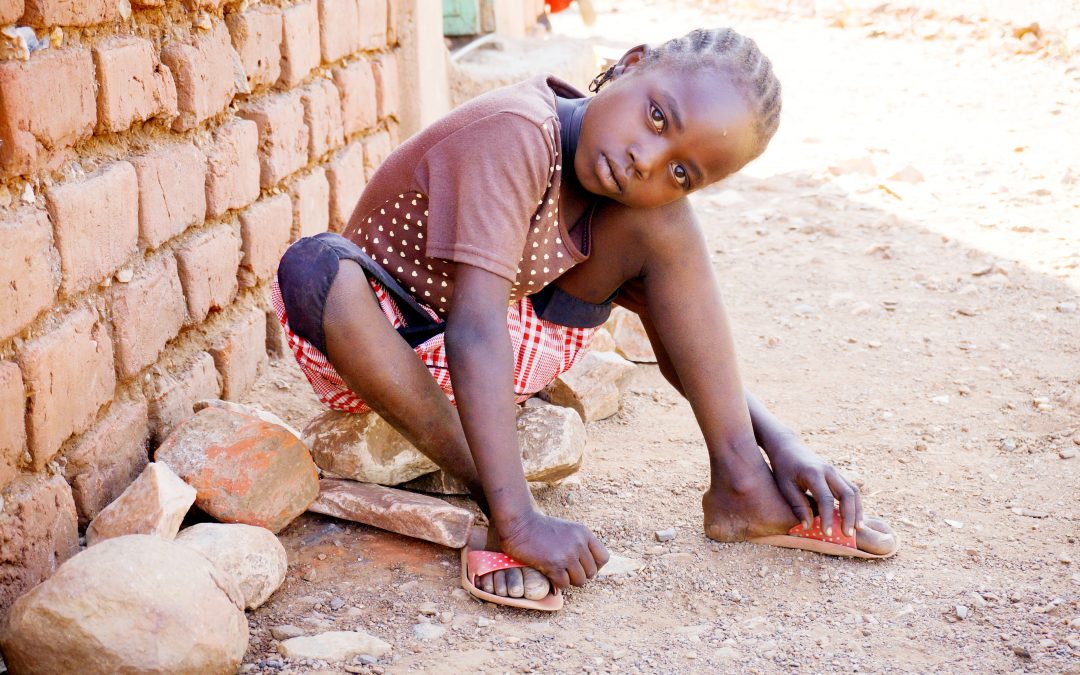“Maria” was four years old when she was trafficked from Congo to South Sudan.
According to the US State Department Trafficking in Persons Report from 2020: “As reported over the past five years, human traffickers exploit domestic and foreign victims in DRC, and traffickers exploit victims from DRC abroad. Some traffickers were individuals or family members who promised victims or victims’ families educational or employment opportunities but instead exploited trafficking victims by forcing them to work as domestic servants, street vendors, gang members, or in commercial sex. Most trafficking is internal and involves forced labor in artisanal mining sites, agriculture, domestic servitude, or child recruitment by armed groups, or sex trafficking.”
In Maria’s case, what she remembers is that both her mother and father were working and loved her very much — so much so that they wanted to see their young daughter educated and thriving — opportunities that weren’t available to her locally.
One day, a neighbor suggested to her parents that they entrust Maria to the neighbor’s care so that she could take Maria to school abroad. When they agreed, the neighbor brought Maria to South Sudan and a three-year nightmare began.
Maria recounted that, “when I was taken by her, she started treating me badly and until I ran to police to rescue myself otherwise the way that woman was treating me was not out of love.”
While she was at the police, our leaders interceded for Maria’s life and eventually she was brought to Hope For South Sudan in 2014 to receive protection, healing, and education. Her abuse had been so bad that upon her arrival, the then seven-year-old Naomi was treated for bite marks that her captor had inflicted on her small body.
Today, Maria is in the sixth grade at Hope For South Sudan, where she and 400 student change-makers are being lifted up.
Every partner location is unique in our anti-trafficking network, but one of the special elements of the HFSS ministry is that there are over 20 different tribes (and four nations) represented — Toposa, Otuho, Lango, Lokoya, Lulubo, Tenet, Kirenge, Buya, Acholi, Pari, Kakwa, Madi, Didinga, Lopit, Dinka, Congolese (Congo), Moru (Nuba, Sudan), Touru (Nuba, Sudan), Bari, and Karamojong (Uganda).
Once vulnerable children, from some-times warring communities, who needed rescue are now thriving, growing, and learning side-by-side in a celebration of unity in diversity.
Scripture reminds us that the unity in diversity found at HFSS is the goal globally and eternally and that our songs of gratitude and praise are always stronger when they are sung together:
“I looked again. I saw a huge crowd, too huge to count. Everyone was there — all nations and tribes, all races and languages. And they were standing, dressed in white robes and waving palm branches, standing before the Throne and the Lamb and heartily singing…
‘Oh, Yes! The blessing and glory and wisdom and thanksgiving, The honor and power and strength, To our God forever and ever and ever! Oh, Yes!’
…The One on the Throne will pitch his tent there for them: no more hunger, no more thirst, no more scorching heat. The Lamb on the Throne will shepherd them, will lead them to spring waters of Life. And God will wipe every last tear from their eyes.” (Revelation 7 MSG)
At LUV, we’re committed to joining God where the loving tent is pitched — with the most vulnerable — and participating in ending hunger, thirst, trafficking, and oppression.
We envision a world where vulnerable children and women are empowered, and, through them, war-torn nations are transformed. Together, we can eliminate the exploitation of vulnerabilities, provide freedom, and restore hope.
This Christmas, as we celebrate the miraculous ways that Immanuel shines Light into the darkness, let’s prove how united the world can be when we lift up the vulnerable together! With your help, impossible transformation is made possible for little ones — like Maria — growing up in warzones.
Today through December 31st,every donation will be doubled up to $100,000!

